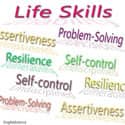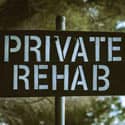Questions to Ask an Addiction Treatment Centre
If you are a parent or a friend of someone suffering from addiction and looking for help, you should look for certain things. The first thing to remember is that help is available, but you may already know that.
At this writing, there are several hundreds of drug rehab centres available in Canada. And there are thousands more internationally. Maybe your current struggle is not in finding support, but instead, it is in finding the appropriate help. Here are ten vital questions to ask a treatment centre.
Substance abuse treatment is something that you want to get right the first time. So, here are some questions to help you select the right treatment program. Your selection of centre is as important as the decision to get help.
Choosing a Drug Rehab Centre
Questions You Should Ask
Maybe you or a loved one has been to a program before. This would give you a reference point to evaluate the treatments that have not worked in the past. But if this is your first time seeking treatment, knowing what to look for in a recovery program is important since not all are equal.
The process usually starts with a discussion with a representative of a drug and alcohol treatment facility. It would be best if you asked specific questions by phone or in-person to gain insight into their programs.
Below, you will find some of the key ones you should ask. You can ask many more, but these are the important ones. So, here are some examples of direct and open-ended questions. Getting answers to these allows you to learn about the program you may have in mind for a loved one or yourself.

Insurance
Coverage
Life Skills
in a Rehab

1. How long is the treatment program?
The time spent in addiction treatment is important. Quite a few centres offer a 28-day program; this time frame will not serve most participants’ needs. A stay of 28 days is not enough time to overcome a substance abuse problem.
However, you will find that 28 days is the standard coverage period for most insurance policies. Many of the public addiction recovery centres and some private drug rehabs offer this model of approach. A long-term program that provides 45-60 or a 90-day treatment or more is decidedly better—giving enough time for the person to adapt to their new life.
2. Find out what kind of results the facility expects from the individuals finishing their program.
Results from addiction rehabs will vary from centre to centre. Some programs encourage their graduates to continue a maintenance program, meaning that medications like suboxone or methadone should be taken. Other facilities will expect the person to relapse, and for them, this is normal and expected. Some programs go the extra mile, working towards the objective of total sobriety with no substance whatsoever.
It would be best to determine what you want to achieve and work with a treatment centre that will provide that. The individual’s motivation to do the program for him or herself is also an essential factor in success. The program’s result will be, to a great extent, dependent on the individual’s decision to be drug or alcohol-free.

Quitting
Today
Treatment
Approaches

3. Find out if the centre engages in medication-assisted treatments.
Medication-assisted therapy is not a new idea in addiction treatment. This model began around the time of the U.S. Civil War. It is based on the idea that the person has relapsed too often and needs substitution. Their approach uses drugs, but they are considered medication, legal, and monitored. The principle is that legal drugs assist recovery and make it easier for the individual. The outcome of this method is essentially trading one substance for another.
A program offering total sobriety will only condone medication-assisted treatment programs during withdrawal. This is standard practice during the detox phase of any program, especially the withdrawal of specific drugs or heavy alcohol abuse. One should not confuse a medical detox with Medication-Assisted Therapy. Medical detox should only last a week or so in a supervised setting. If the use of drugs goes past this point, you may want to look for another facility if you desire to be totally drug-free.
4. Ask how this centre can aid the person in coming down from mind-altering substances.
You may find this question to be more important than you realize. You want the treatment centre you are considering to have a plan for people coming off drugs and alcohol. Rarely, but still can be found, some facilities that make their clients quit cold turkey. Uncomfortable, to say the least, and a potentially dangerous process to undertake. While there will always be some discomfort, the use of medication requires close medical supervision.
The better programs will also include vitamin therapy during this phase of recovery. Ensure you ask about the facility’s detox protocol and whether a medical detox is necessary and available.
5. Find out what the overall program schedule will include for rehab.
You want to have an idea of what your loved one is to expect during recovery. The program should have some daily scheduled activities. There should be some form of structure. This is vital to living a drug-free lifestyle; many substance misusers have lost control of structured living. So, having a program that lets the person go through a daily routine will bring about more confidence.
Now, it’s quite certain that the program counsellor will not go into details about the schedule, but at least you know your relative or friend will be given daily directions and not left to wander.
6. Does the treatment centre serve a balanced nutritional meal?
A lot can be said about a facility by how the clients are fed. The addiction facility should have tasty meals, but the focus should be on healthy, balanced meals conducive to healing the body. Daily noodles sweet sugary-filled desserts will only harm recovery. Ask about whether the client can access fruits, vegetables, and quality proteins, including nutritional supplements.
Some drug rehabs will have vitamins available; others permit the client to bring their own. In any case, the vital point to have is proper food intake to build up the body’s reserve. It would help to inform them of any special food needs or allergies. Drugs and alcohol abuse often cause physical problems, so proper nutrition is vital to rebuilding the body.

Choosing a
Private Rehab
Detoxing
on Your Own

7. Does this rehab centre focus on underlying issues besides addiction to drugs or alcohol?
Addiction is a multifaceted crisis. Abuse of mind-altering substances brings destruction and reaches into just about every area of a person’s life. A good program will offer services that will address various underlying issues. These can include, but are not limited to, excessive eating, anxieties, trauma, OCD, and similar things. You should find out if the facility has certified professionals in these fields.
8. Recovery often requires certain life skills; ask if those are offered.
Life Skills are tools that assist the recovering addict when released from treatment, learned to help deal with daily affairs. Proper treatment programs will do their best to provide their clients with the necessary preparation for their lives of recovery. Ask the intake counsellor if their drug rehab centre offers life skills. If so, what do they dispense? It can include getting finances in order, choosing sober friends, dealing with relationships, or finding and holding a job. Or any other issue that should be addressed to help the person build self-confidence and move forward in life.
9. You should inform yourself of the facility’s philosophy or belief about addiction.
Each facility will state its philosophy or its tenets about addiction. You will find that specific treatment centres will see addiction as a chronic disease of the brain. Many centres feel addiction is an affliction that can be addressed and removed permanently. A holistic ideology will approach addiction as a multi-faceted issue and tackle the mind, body, and spirit in the process. Make sure you pick a rehab whose beliefs align with yours.
10. Does this addiction treatment program include aftercare, post-graduate support, etc.?
Lastly, does the drug rehab program stay in touch with their graduate client after treatment? It is also important that life in the real world is moving forward toward the person’s established plan. Such centres usually will have some form of discharge plan to help and assist the person before departure.
Quite a bit of work is invested in recovery by the person and the staff, including family members. Be sure to ask what to expect when the person finishes their stay. Helping your loved one return to a substance-free life is one of the most significant actions of your life.
The decision on which addiction recovery facility to sign up for is vitally important to attain sobriety. Take the time to ask these questions or any other you might have. Get a feel for the programs you are considering. You or your loved one’s recovery experience will be all the better for it.
Back to Helping a Loved One
About Treatment
- The Challenges of Rehab and How to Overcome Them
- The Dangers of Letting Your Loved One Detox Alone
- Choosing a Private Drug Rehab: 5 Key Things to Look For
- Does Insurance Cover Addiction Treatment in Canada?
- Essential Life Skills to Learn in Addiction Rehab
- Quitting Today – A Decision You Can Make
- 10 Questions to Ask Before Choosing a Rehab Centre
- Funded or Private Addiction Treatment?
- The Challenges of Rehab and How to Overcome Them
- The Dangers of Letting Your Loved One Detox Alone
- Choosing a Private Drug Rehab: 5 Key Things to Look For
- Does Insurance Cover Addiction Treatment in Canada?
- Essential Life Skills to Learn in Addiction Rehab
- Quitting Today – A Decision You Can Make
- 10 Questions to Ask Before Choosing a Rehab Centre
- Funded or Private Addiction Treatment?
Find out more about us.
Testimonials

Susan Chubbs
Drug & Alcohol Treatment Specialist,
Referral and Consultation Counsellor
and Recovery Coach


